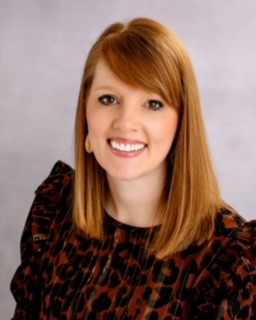

State DHS Director Turns Passion into Action and Vision into Change
Serendipity may have brought Samantha Galloway, Interim Director of the Oklahoma Department of Human Services, to I/DD, but passion and a commitment to help people has kept her here and driven her to be a tireless, effective leader in this supports and services sector.
She says, “Historically, I did economic development in the field. But in a very short period of time, I fell in love with the people we served. And I never fell out of love.” She adds, “There is no switch you can turn off. It gets in you and never goes away.”
Ongoing Challenges and Commitment
Like other sectors of healthcare, I/DD is facing its fair share of challenges currently, but Galloway remains optimistic and committed. “There is tremendous opportunity in times of crisis. Much of the success we’ve had in Oklahoma came in right before COVID, as we were looking at how to modernize to best serve people, handle workforce shortages, and address other issues. We were forward thinking,” she says.
Then the pandemic happened, but she and her team didn’t stop. Instead, they took advantage of the knowledge that there were opportunities for change and ways to be responsive without traditional government restraints.
She explains, “The pandemic showed us that providers are flexible, nimble, proactive, and able to meet people’s needs in an ever-changing world.” For instance, she says, “They met people’s needs in Oklahoma in a way that was truly extraordinary.”
Building on this momentum, she hopes that providers and families will have a seat at the table to identify and determine what additional services to put in the mix.
Advocacy Leads to Huge Advances
A true leader and advocate, Galloway understands the challenges I/DD providers face, and she works to help them overcome these. She says, “We understand that we can’t ask providers to do more if we don’t give them the resources to do more. We’ve secured a 25% rate increase, and that is a key component to modernize any service support system changes and innovations.”
She stresses the role of advocacy, noting that such efforts have “produced a tremendous amount of fruit for Oklahoma.” For instance, she notes, “The legislature here gave us full funding to accommodate everyone on the wait list.” This is huge, as eliminating or at least reducing waiting lists has been a key goal – but also a challenge – for most states.
Galloway has sound advice for I/DD providers, those partners in care who love the field as much as she does. Among her insights:
- Always be thinking about and preparing for opportunities. Keep the future on your radar, even as you are working and addressing today’s challenges and issues.
- Continue to be strong advocates. Share stories with policymakers and help them see how their decisions impact real people every day. She stresses, “Everyone has to be able to tell their story. It’s important to make advocacy personal to someone who can do something and lead change.”
- In your advocacy efforts, assume that everyone wants to do the right thing. Galloway says, “Whenever I encounter a legislator or other policymaker, I always assume positive intent. We have been very effective going into relationships with sincerity.” She suggests that if you can’t see eye-to-eye or reach a compromise, respect that and move on.
- Work to maintain the momentum. While there will always be new crises and challenges, it is important to maintain a focus on goals and changes that amplify the value of I/DD services for those who need them.
Looking ahead, Galloway continues to be positive and focused on the work and people she loves. The pandemic brought attention to the value of home- and community-based services, and this made everyone rethink models and how and where services are provided.
“During the pandemic, we often saw the innovative things congregate care services settings were doing to enable patients to have access to their families. This made me think about how we may be able to service people in their homes to keep their lives as normal and happy as possible in times of crisis,” she says. “I would like to see the federal government work with states and local jurisdictions to end waiting lists across the country and determine a rate structure to give people access to services and choice.”
Samantha Galloway has spent most of her prestigious career in human services. She previously served as Chief of Staff at DHS and one of the agency’s deputy directors. She also served as legislative liaison and as a case manager in the Developmental Disabilities Services Division. Elsewhere, she is past Executive Director of the Washington (Parish) Economic Development in Bogalusa, Louisiana, former Director of Community Services at the Center of Family Love in Okarche, OK, and Executive Director of Oklahoma Community-Based Providers.
